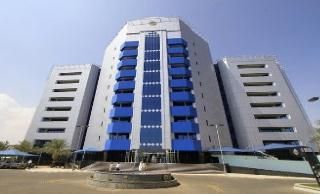Sudan’s central bank outlines its 2012 policies
December 23, 2011 (KHARTOUM) – The governor of Sudan’s Central Bank Mohamed Khair al-Zubair said the bank in the upcoming period will focus on ensuring the stability of the exchange rate, balancing demand and supply by boosting domestic production and cutting down government borrowing from the banking sector.

The governor also called on the private sector to take advantage of regional funding institutions and international organizations such as the Arab Fund for Economic & Social Development, Kuwaiti and the Saudi development funds, Islamic Development Bank, Organization of the Petroleum Exporting Countries (OPEC).
Al-Zubair said that Sudan has begun to attract the internal and external support for implementing its three-tier development plans starting from the next budget. He added that the Bank of Sudan will continue its policies to strengthen the microfinance projects and provide financial support to revive small industries in the country by allocating 12% of the banks’ portfolio for financing.
He explained that there is $100 million in available funding from agricultural and the Industrial Banks to help in financing projects.
Last July, the oil-rich South Sudan broke away to become a separate nation denying the north billions of dollars in revenue and causing an erosion in the value of the pound.
Analysts and critics say that the Sudanese government failed to use the oil money to diversify the economy and help non-petroleum sectors such as agriculture. They also accuse the government of overspending and mismanaging the country’s resources with special focus on defense and security.
Khartoum is hoping that fees it wants to charge the landlocked south for transporting its oil through the infrastructure in the north will partially offset the economic impact of the country’s breakup. But to date negotiations between the two countries on how much the fee should be per barrel failed to yield results.
(ST)
